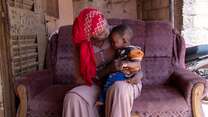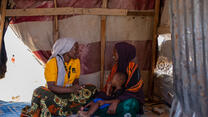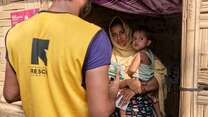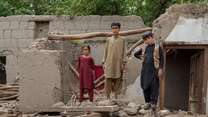WHO WE ARE
The mission of the International Rescue Committee (IRC) is to help people whose lives and livelihoods are shattered by conflict and disaster to survive, recover and gain control of their future. The IRC’s vision is to lead the humanitarian field by implementing high-impact, cost-effective programs for people affected by crisis, and shape global policy and practice by sharing our learning and experience with others.
All IRC programs are designed to achieve meaningful change in people’s health, safety, education, economic wellbeing and ability to influence the decisions that affect their lives. The IRC maintains a dedicated professional Research, Evaluation and Learning (REL) Technical Unit team to ensure that the organization is both outcomes driven and evidence based in its approach.
What do we mean by outcomes?
The IRC has made a commitment to focus on the impact we have on the communities we serve by making measurable improvements in five outcome areas: Health, Safety, Education, Economic Wellbeing and Power.
What do we mean by evidence?
Evidence refers to information that is systematically obtained and analyzed to determine whether, how and why a given intervention works. The IRC identifies, prioritizes and uses the best available information from research studies that indicate and explain causal impact. We generate evidence using rigorous methods that answer the most critical questions for action.
WHY OUR WORK MATTERS
The IRC is undertaking a major organizational shift to more clearly determine what interventions do and do not work in specific contexts. Investing in this approach and the tools to apply it helps staff make the best decisions to improve outcomes for our clients.
Focusing our interventions on outcomes is different from how the organization operated previously, and how many in the humanitarian community continue to operate. Rather than measure success by outputs that result from activities, the IRC is invested in interventions proven to be effective based on our research and experience.
WHAT WE DO
IRC practitioners provide technical assistance to more than 30 country programs. Technical advisors are charged with staying abreast of the best available research and practices in their respective fields and sharing these with the IRC’s frontline teams. They also lead advocacy strategies to encourage partners and policy makers to adopt the interventions proven to be effective based on our research and experience.
To improve organizational effectiveness, the IRC is developing tools and processes to design all programs based on evidence and, where evidence is weak or does not exist, design programs to generate evidence. The IRC also recognizes the importance of tracking and measuring results to improve project design and implementation.
To support this, the IRC is:
- Defining the outcomes that matter most to the IRC;
- Mapping the pathways to achieving these outcomes;
- Gathering the best available research evidence about what works to achieve these outcomes; and
- Transforming the evidence into information and tools for designing evidence-based programs.
The REL Unit is leading the development and implementation of the organization’s Outcomes and Evidence Framework. In 2015, IRC researchers, technical advisors, and other program and technical staff worked to:
- Focus IRC interventions within 26 outcomes in the areas of health, safety, economic wellbeing, education, and power, and five additional crosscutting outcomes focused on gender and one on minority groups;
- Create comprehensive theories of change and indicators associated with these outcomes; and
- Develop Evidence Maps that collate the available research and its applicability to the outcomes sought.
An interactive platform that brings together the Outcomes and Evidence Framework tools for comprehensive humanitarian program design is now available at oef.rescue.org.
All IRC country programs are realigning their program strategies to focus on outcomes and be based on evidence using the tools contained in the organization’s Outcomes and Evidence Framework.



